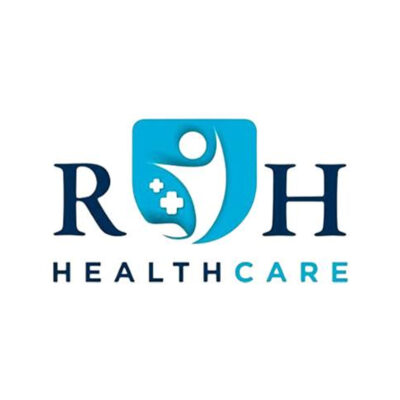What are shockproof hand gloves? Uses, features, and more

Shockproof hand gloves are not ordinary gloves—they are engineered to protect human hands from electric shock while allowing movement and dexterity for industrial tasks. Many professionals in Gujarat and beyond now rely on these gloves for everyday safety. At RH Healthcare, recognized as a shock proof hand gloves wholesaler in Gandhinagar, we offer gloves that combine reliable insulation, grip, and comfort. These gloves serve electricians working on live circuits, technicians handling power equipment, and maintenance teams in manufacturing plants. RH Healthcare also serves customers across the region as a shock proof hand gloves wholesaler in Gujarat, ensuring consistent availability and adherence to rigorous safety norms. Proper use of these gloves reduces the risk of electrical injury, supporting safety compliance in high‑risk tasks. The gloves are made using advanced insulating material, tested under regulated conditions, and certified to Indian and international standards. They support voltage protection, abrasion resistance, and ease of use, keeping professionals safe as they perform challenging duties. This post dives into why these gloves matter, where and how they are used, their essential features, and how RH Healthcare supports clients with safe and certified products. Let us explore their benefits, real‑world applications, and why they have become indispensable in modern industrial safety.
Why Electrical Protection Gloves Matter More Than Ever
Every year, injuries caused by accidental contact with live conductors or faulty equipment result in serious harm or fatalities. While helmets, goggles, and footwear offer surface protection, nothing safeguards the hands like shockproof gloves do. Even low‑voltage shocks can trigger reflex actions that cause falls or equipment mishandling, leading to secondary hazards. Electrical professionals require gloves that offer both safety and flexibility. RH Healthcare stocks gloves rated for different voltage levels, ensuring suitability from routine low‑voltage maintenance to medium‑voltage installations.
As industrial zones expand across Gujarat, safety regulations become stricter and inspections more frequent. Organizations cannot afford substandard equipment. Certified gloves help businesses comply with safety audits and reduce liabilities. Without reliable gloves, professionals risk not only injury but also disruptions, fines, or shutdowns. That is why choosing a dependable wholesaler, such as RH Healthcare, matters. We partner with manufacturers who ensure consistent quality, accurate sizing, and bulk supply to industries, contractors, and utility companies. Our role is not only to supply but also to help teams choose gloves suited to their environment, usage frequency, and required level of protection.
Real-Life Situations Where Shockproof Gloves Protect Lives
Imagine an electrical technician climbing a distribution pole in peak heat, sweating inside regular gloves. A slip or momentary contact with a live wire could cause a shock and lead to a fall. Now contrast that with a technician wearing certified shockproof gloves: the insulation properties prevent current from passing into the body, reducing the danger. In another scenario, an engineer troubleshooting a motor in an industrial plant might encounter static or leakage current. Without proper gloves, static discharge can cause injury or damage to sensitive components.
With shockproof gloves rated for chemical resistance and static dissipation, the risk is minimized. Even in solar farms or telecom towers, technicians work amid energized components. These gloves are strong enough to withstand punctures and flexible enough to allow tool handling. Workers report greater confidence when inspections involve exposed wiring or insulated conductors—knowing that gloves provide a safety buffer. In railway and metro construction in Gujarat, where third‑rail or overhead systems are present, gloves are mandatory. They save lives every day and reduce injury‑related downtime in busy infrastructure operations.
Core Features That Define Quality Shockproof Gloves
Shockproof gloves differ from regular rubber gloves by carefully engineered properties. The material used must resist electric current, but it also needs to allow movement and protect from tears.
Key features include:
- Layers of high‑dielectric rubber, often natural latex or synthetic blends, prevent current conduction.
- Precise thickness control, with different ratings correlating to voltage levels.
- Extended cuffs that protect wrists and lower forearms, reducing exposure risk.
- Interior coatings or liners that wick away sweat and improve comfort.
- Outer surface with textures or ridges to enhance grip on tools or conductors.
RH Healthcare ensures that all gloves in its catalogue meet standards such as IS 4770, ASTM D120, and IEC 60903. Material sourcing, batch testing, and consistent quality checks form part of our supply assurance program. Each glove is color-coded to display its voltage rating, allowing easy visual identification by workers and safety officers. Ergonomic design minimizes hand strain—workers can wear these gloves for extended periods without fatigue. Altogether, these features support safe handling, regulatory compliance, and ongoing productivity.
Industries Embracing Shockproof Gloves Across Gujarat
As industries modernize, many sectors now adopt electrical safety gloves as mandatory wear.
1. Power generation and utilities: Field engineers working on transformers, circuit breakers, and switchgear require gloves rated for medium voltage.
2. Manufacturing: Motor repair, control panel maintenance, and conveyor line adjustments often involve live components.
3. Construction and infrastructure: Builders working near live overhead lines or integrating electrified rail tracks rely on gloves.
4. Renewable energy: Technicians installing solar panels or servicing wind controllers work near exposed connectors.
5. Telecommunications: Tower crews with live antennas and electrical feeders need gloves to isolate possible currents.
Many businesses now pair glove use with documented training, safety zones, and periodic inspections. RH Healthcare works closely with safety managers to ensure correct glove selection by task, correct storage, and replacement cycles.
Choosing the Right Glove: Beyond Price
Many suppliers offer inexpensive gloves, but selecting suitable gloves requires attention to detail.
Factors to consider:
1. Voltage class and risk level: Never choose gloves rated for low-voltage tasks when working on medium or high voltage.
2. Size and fit: Oversized gloves lead to reduced dexterity; too-tight gloves risk tearing.
3. Certification labels: Ensure each glove carries batch numbers and test results.
4. Material durability: For harsh environments—chemical, asphalt, rough surfaces—choose synthetic blends.
5. Supplier reliability: An established wholesaler ensures accurate stock, supports returns, and helps with replacements.
RH Healthcare offers gloves in multiple classes, accompanied by certification data and user guides. We guide clients through assessing their environment: indoors, field maintenance, repair workshops, or site inspections, and help them choose gloves that match usage patterns and budget.
Correct Usage: From Inspection to Safe Disposal
Using gloves properly extends their life and ensures effectiveness.
Inspection and usage guidelines:
1. Before each use, workers look for cuts, punctures, discoloration, or stiffness.
2. An inflation test (air blown into glove) reveals any micro‑leaks.
3. Only wear the gloves when the correct tools are insulated—never rely on gloves alone.
4. Clean gloves by hand with gentle soap and water; rinse and dry naturally away from sunlight.
5. Store gloves in a dry, dark area, ideally in a protective container, separated from chemicals and sharp objects.
6. Record usage hours—most gloves have a recommended service life or test intervals.
7. Discard when failures appear during testing or when reaching the end of service life.
RH Healthcare leads training sessions for industry clients, teaching workers how to inspect, maintain, and retire gloves. This reduces misuse and helps avoid workplace accidents.
The Business Case for Using Certified Gloves
Many companies hesitate at equipment costs. However, certified shockproof gloves deliver long-term financial and safety benefits:
- Fewer injury‑related work stoppages or absences
- Lower insurance claims and penalties
- Compliance with occupational safety standards and audit readiness
- Longer glove lifespan versus disposable low-grade gloves
- Improved workforce morale when safety is visibly prioritized
RH Healthcare supports cost-effective bulk ordering, offers flexible delivery options across Gujarat, and provides consulting to align safety gear choices with business scale.
Training and After‑Sales Support from RH Healthcare
A product is only as effective as its usage. RH Healthcare stands apart by offering:
- Training workshops on proper selection, inspection, and glove use
- Periodic follow‑up to ensure clients understand inspection logs and replacement schedules
- Guidance on disposal protocols and record‑keeping for audits
- Quick replacement for damaged inventory or extended supply requirement
This support framework ensures gloves are not just purchased—they are integrated into everyday safety systems.
Innovation Trends in Insulating Gloves
Looking ahead, the field is progressing:
- Bio‑powered sensors embedded in gloves to measure environmental voltage
- RFID or NFC tagging for inventory tracking and inspection logs
- Hybrid materials combining chemical resistance with electrical insulation
- Improved sweat management and breathability without sacrificing safety
RH Healthcare anticipates these advances and actively evaluates new models, ensuring clients can access cutting-edge safety gear as soon as practical.
Summary
Shockproof hand gloves are essential safety gear for anyone working in environments with potential electrical risks. These gloves, with proper certification, fit, and maintenance, dramatically reduce shock accident rates and support compliance with industrial regulations. Their design evolution now balances safety, comfort, and flexibility. RH Healthcare, as a trusted shock proof hand gloves wholesaler in Gujarat, delivers gloves that meet required standards and supports customers throughout product use. From comfortable materials to transparent certification and dependable supply, the gloves represent both protection and peace of mind in industrial operations across sectors.Choosing high‑quality shockproof hand gloves is more than a safety decision—there is responsibility toward every person on your team. Equipping professionals with reliable protection shows that safety matters and operations can continue without compromise. If you wish to purchase from a reputed shock proof hand gloves wholesaler in Gandhinagar, reach out to RH Healthcare today. Discover gloves that balance insulation, durability, and ergonomic design—and benefit from expert guidance, training, and certified products that support safer workplaces for years to come.
